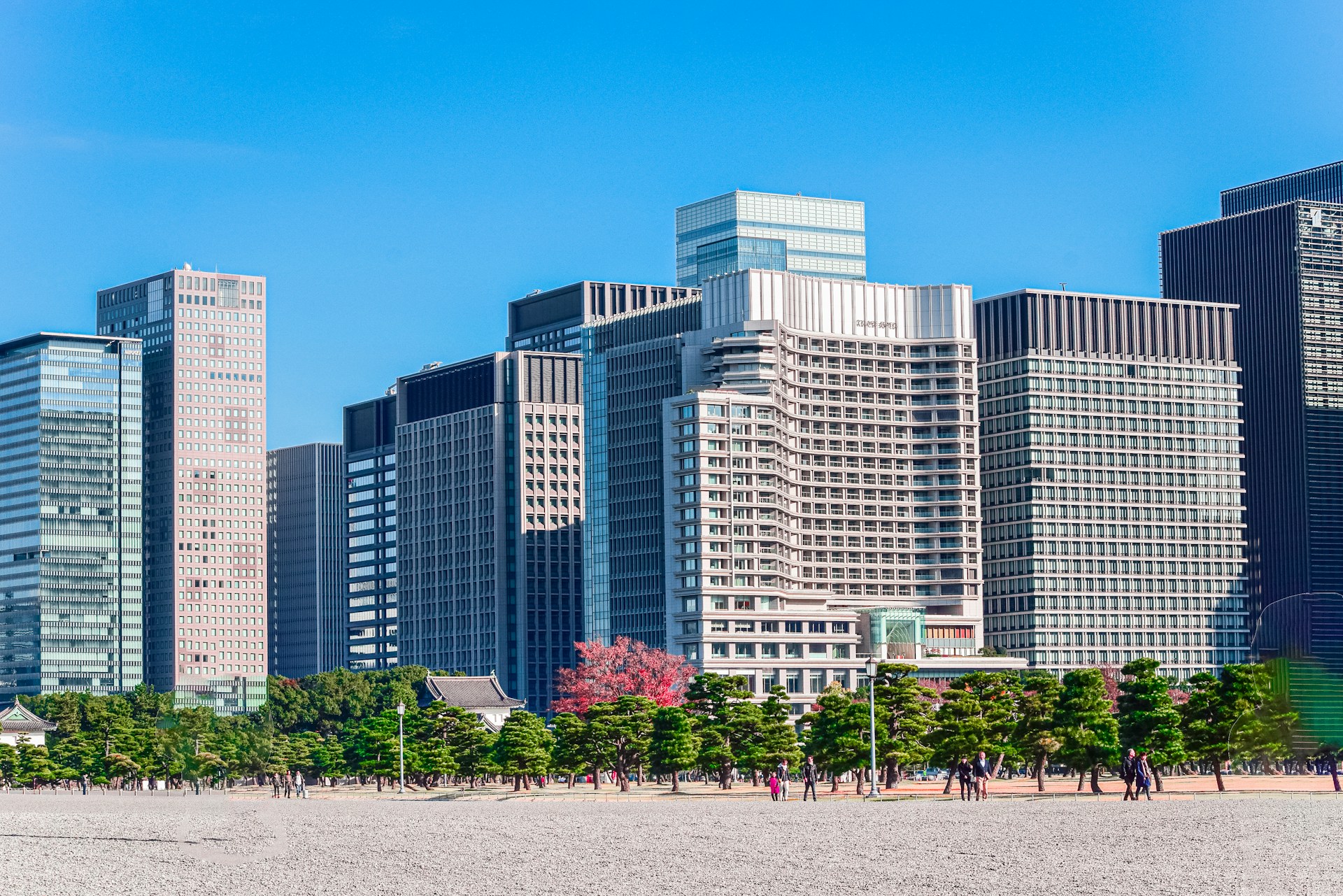What factors influence office and hotel yields rising in Japan
The property market in Japan has not yet recovered, but analysts are optimistic. They predict that the profitability of offices and hotels will increase in the near future. The reduction in vacancy rates is evidence of this.
Previously, experts had expected a large influx of tourists from China, which would have boosted hotel occupancy. However, unlike guests from other countries, Chinese citizens are not in a hurry to visit Japan. Demand for hotel rooms has increased among the latter. As a result, hotel accommodation costs have risen by 35% compared with the pre-pandemic period.
Trends in the office sector
For office space in Tokyo, the situation is as follows:
– in March 2024, the vacancy rate for space in the capital’s five central districts was 5.4%;
– six months ago, the figure was 6.2%;
– the vacancy rate is below 6% for the first time in 3 years;
– the number of office premises in new buildings decreased to almost 24% from 43%.

Analysts also note increased rental rates, particularly for prime office space in the capital’s Marunouchi district. The value of the new Grade A space in Tokyo has risen by five consecutive quarters. However, DWS analysts Koichiro Obu and Hyun Woo Kim forecast a high office vacancy rate. This is mainly due to an increase in market supply.
In 2023, the transaction volume in Tokyo’s commercial property sector will be close to US$23 billion, 3% lower than in 2022. In addition, the share of office space in the total transaction volume reached 48%. This is the first time in 14 years that such a trend has been observed. Previously, it had never fallen below 50%. Nevertheless, this sector continues to dominate the market.
Hotel property overview
Since the beginning of the year, analysts have recorded a steady increase in hotel occupancy rates in Tokyo and Osaka. In the first quarter, this indicator reached 85% for budget rooms in the capital. The last time the indicator was this high was in 2018 when it was 87%.
The main stimulus for hotel occupancy growth is the increase in tourists from Asian countries and the United States. At the same time, experts continue to hope for an increase in the activity of visitors from China.
Analysts noted the growing interest of foreign investors in Japanese hotels. In 2023, 27 deals for resort complexes were concluded on the market, with buyers from Singapore and the United Arab Emirates.
Overall, Japan’s real estate market is still struggling with the effects of the 2022 pandemic and crisis. Investment in the sector fell by more than US$31 billion in the first quarter of 2024. Yields remain pretty low, except for offices and hotels.
